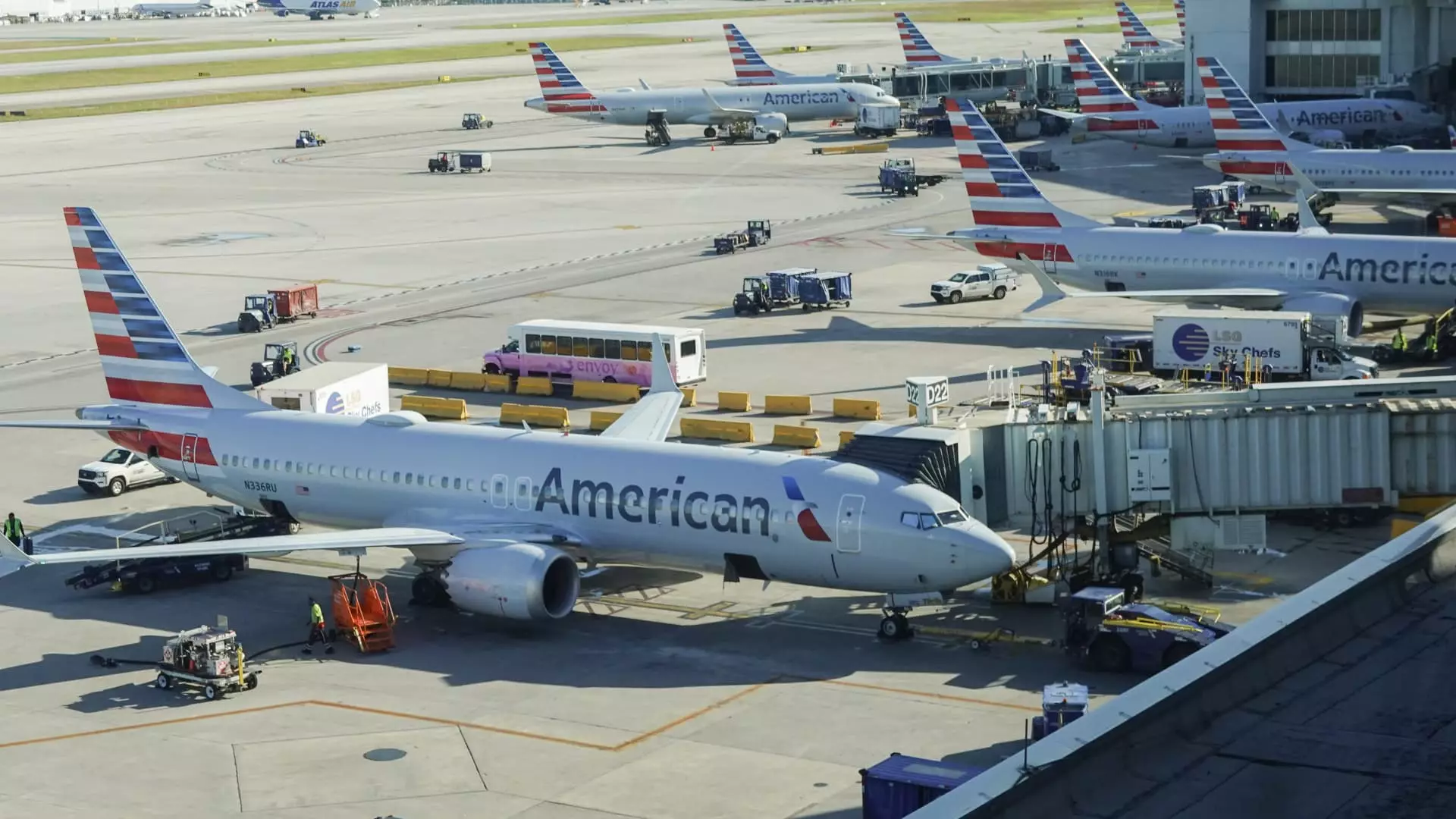On Tuesday morning, American Airlines faced a brief yet significant disruption as it grounded its U.S. flights due to a technical issue. This incident occurred within the backdrop of a holiday travel season predicted to see record-high passenger volumes. Although the ground stop lasted for less than an hour and was lifted by 7:55 a.m. ET, it raised concerns about operational reliability during a peak travel time. The incident highlights not just the vulnerabilities of airline IT systems but also the broader implications for consumer trust and operational efficiency.
The grounding stemmed from complications with network hardware involving DXC Technology, a vendor responsible for maintaining American Airlines’ flight operating systems. These systems are critical for managing essential data, including an aircraft’s weight and balance—information crucial for ensuring safe departures from the gate. American Airlines released a statement confirming that the issue had been rectified and flights had resumed normal operations, coupled with an apology to customers for the inconvenience.
While the grounding did not lead to any flight cancellations, it serves as a reminder of how susceptible airlines are to database malfunctions. With impending travel spikes due to the holidays, such technical problems can severely aggravate an already strained infrastructure.
The Federal Aviation Administration (FAA) noted that American Airlines had proactively requested the ground stop to prevent congestion in destination airports. Ground stops function as a vital regulatory tool for airlines, often enacted during severe weather conditions, technical failures, or other operational setbacks. Preventing aircraft from taking off, in such situations, helps manage air traffic effectively and minimizes the risk of overcrowded airports struggling to accommodate diverted flights.
This incident emphasizes the importance of communication and quick action in maintaining operational stability. Airlines must continually evaluate and refine their practices, especially as patterns of air travel evolve.
This event recalls several recent crises within the airline industry, revealing a significant need for technological modernization. Previous high-profile disruptions, such as Southwest Airlines’ struggle during the 2022 holiday season or Delta’s extensive recovery efforts after a Cybersecurity incident with CrowdStrike, underscore the necessity for airlines to invest in more resilient and reliable technological infrastructures.
The incident has revealed that the airline industry’s patchwork network of technological platforms can lead to larger-scale disruptions, risking operational continuity and damaging consumer confidence. These vulnerabilities may prompt passengers to reconsider their choices. Therefore, airlines must not only ensure operational integrity but also restore faith in their ability to deliver reliable services.
American Airlines’ brief grounding incident is more than just a hiccup in a busy travel season; it underscores the pressing need for robust infrastructure and contingency planning within the airline industry. Continuous investment in technology, coupled with effective management strategies, will be crucial for airlines as they strive to meet the growing demand while minimizing the risk of future disruptions. As airlines navigate the complexities of modern aviation, the development of reliable systems must become a priority to retain customer trust and ensure smooth operations during peak travel periods.

